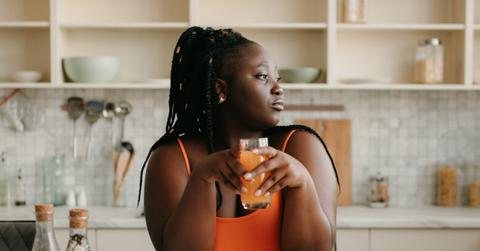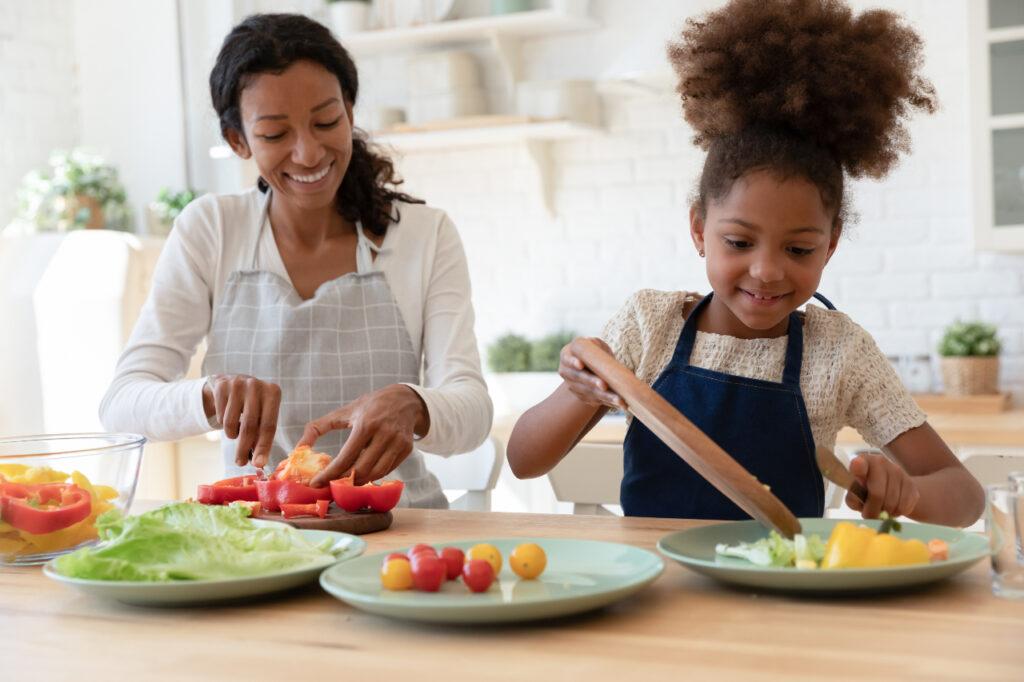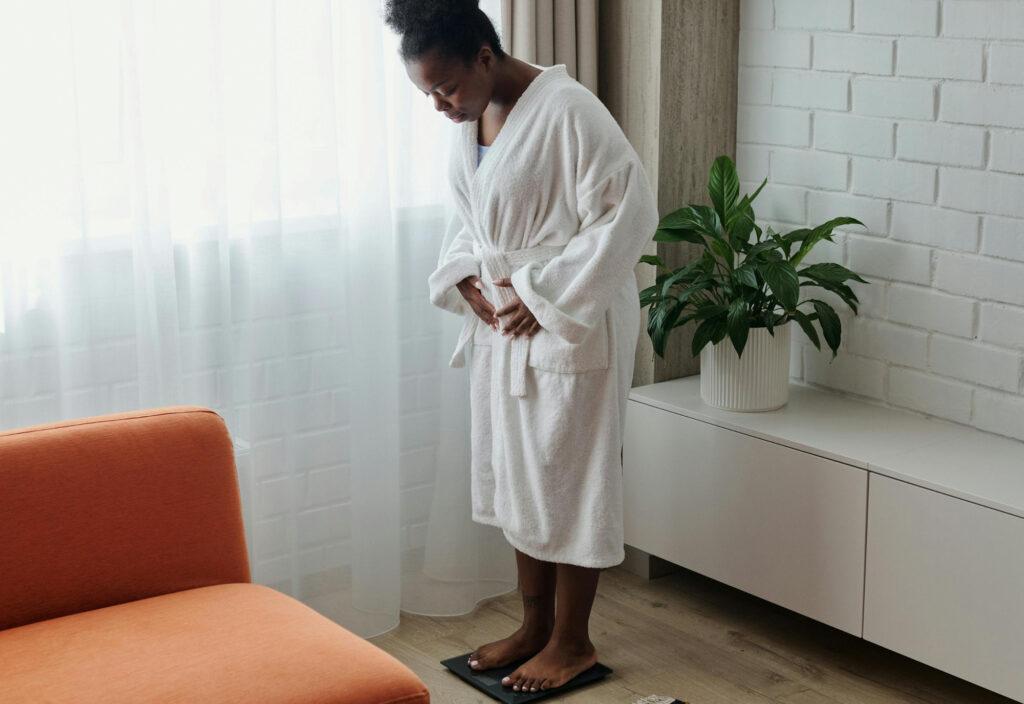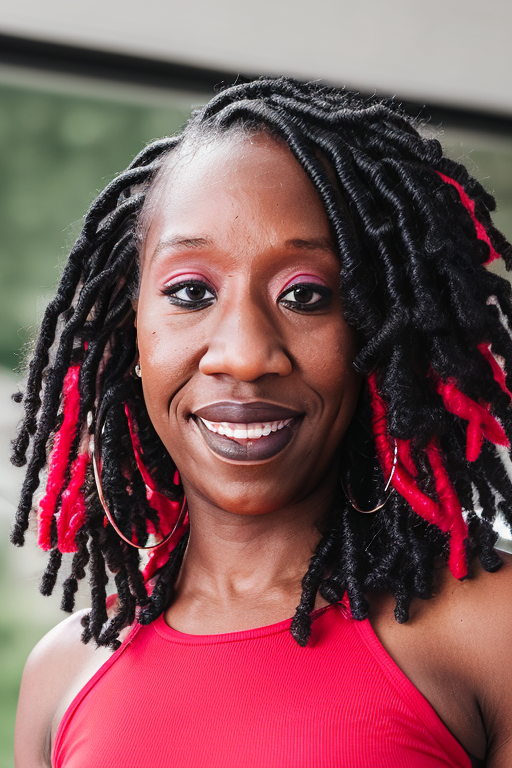Exploring Black Women’s Relationship With Food And How To Build Healthy Habits

source: Adobe Stock
New resolutions come with the new year, with a commitment to weight loss and healthy wellness habits being the top prioritized. Some can easily achieve their health-related goals, and some struggle with lifestyle changes. For many Black women, it’s a challenge to have a positive food relationship.
Research has shown that Black women are “more likely to have binge eating disorders” when compared with other minority groups, are going undiagnosed when it comes to eating-related illnesses, are disproportionately affected by food deserts and are at high risk for health issues such as, hypertension, heart disease, and pre-diabetes.
I spoke with two women, whose names have been changed in respect of their privacy, to talk about their experiences with seeking healthy relationships with food—and ultimately with themselves:
Addressing Childhood Trauma And Pinpointing Triggers

“During my teen years, I had undiagnosed binge eating, which still affects me to this day,” *Summer said. “As a child, I was always a little overweight, by 10 pounds at most. My pediatrician recommended I lose weight, so my first diet was at 10.”
She added that, although her mother wasn’t strict or forceful about it, “no” was used frequently, which “to a 10-year-old was the worst thing to hear.” She recalled that she began to negotiate with her mother. “So, for two days, I would just eat the meals provided for me, drink water only, and then I would get a snack on the third day.”
Despite staying active as a child, Summer developed a late-night snacking habit that continued into adulthood.
“I started going to therapy in 2021, and one of the things we worked on was that food is a necessity and I shouldn’t use it as a reward,” she said. “I’ve also learned it’s OK to be hungry and eat something rather than starving to the point of overeating.” she added.
*Ruby shared that, after growing up experiencing years of bullying, she developed an eating disorder at 14, and she eventually lost all her coping outlets. “I thought eating disorders were anorexia or bulimia,” she said. “And I hate the feeling of throwing up, so I used laxatives.”
When school officials learned about the self-harming, her mother was notified and “threw me into therapy,” she added. She still attends due to being diagnosed with bipolar disorder a few years ago and said she has a much better food relationship. “I eat what I want when I want it, within my grasp. Because of therapy, I’ve been able to release anger, cut ties with many people, including relatives, and confront my self-hatred. I try to eat healthy, but occasionally indulge and treat myself.”
Finding Solutions For A Healthy Relationship With Food

Dr. Ebony Butler, a licensed psychologist and food relationship strategist, shared some relevant and interesting insights with the hosts of the “Between Sessions Podcast.” To help start a positive food relationship, she recommended these steps during the episode:
“The first step is observing your food rules and how much diet culture influences your life. How often do you discuss your weight and body with friends? Be conscientious about how you perceive and speak about yourself when you look in the mirror.
“The next step is to take the lowest-hanging fruit, like easing into changes that won’t significantly disrupt your life. Most people want to change everything suddenly, but you can’t do that. It’s not going to work.”
“In the third step, you should reflect on your childhood messages, such as eating everything on your plate because you paid for it or because African children are starving. Take those thoughts out of the discussion, such as no phones at the dinner table. A lot of this is mindset work, which we must begin with. Diet culture says we should start with behavior. But we got to start on the mental side first.”
*Names have been changed for privacy.






